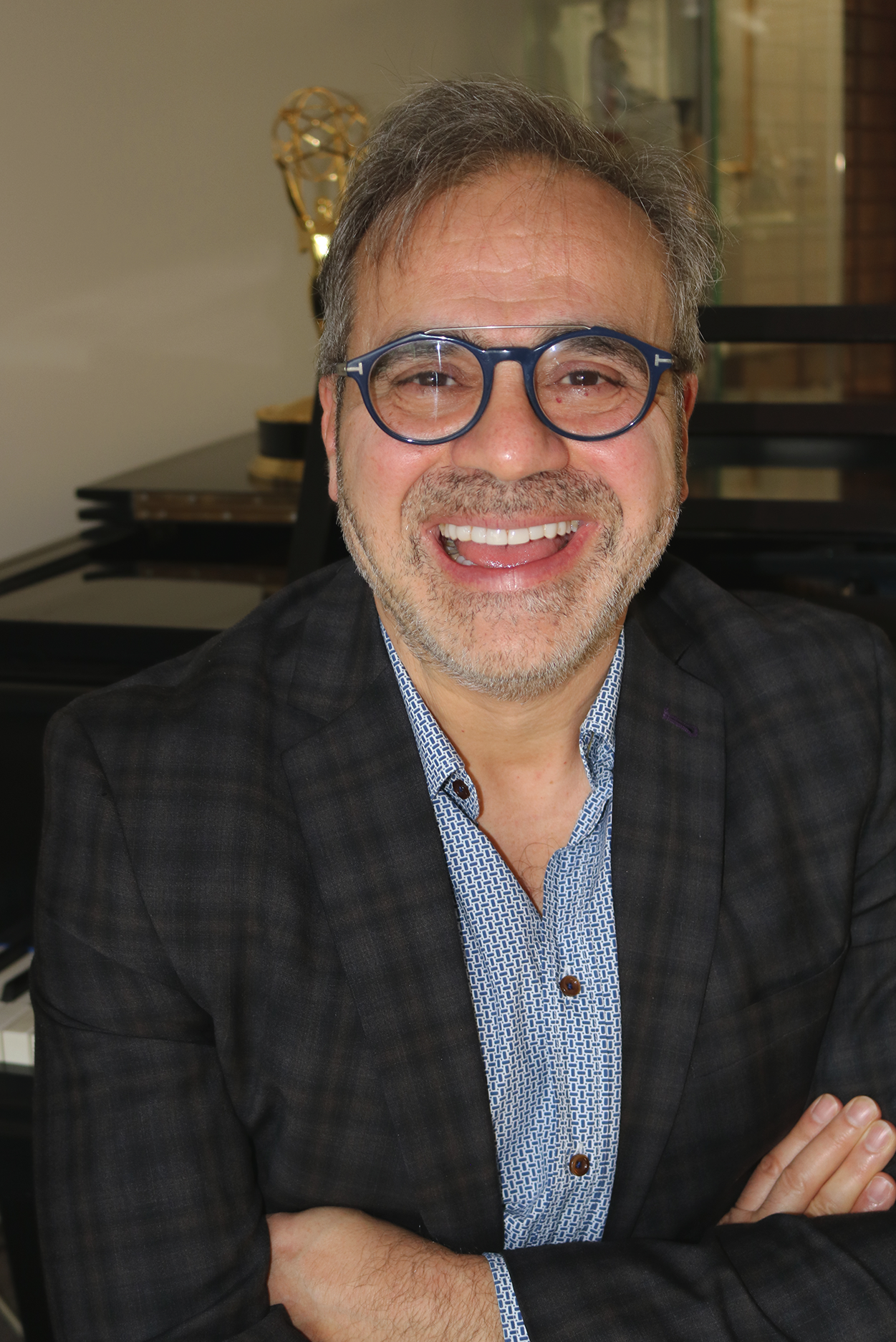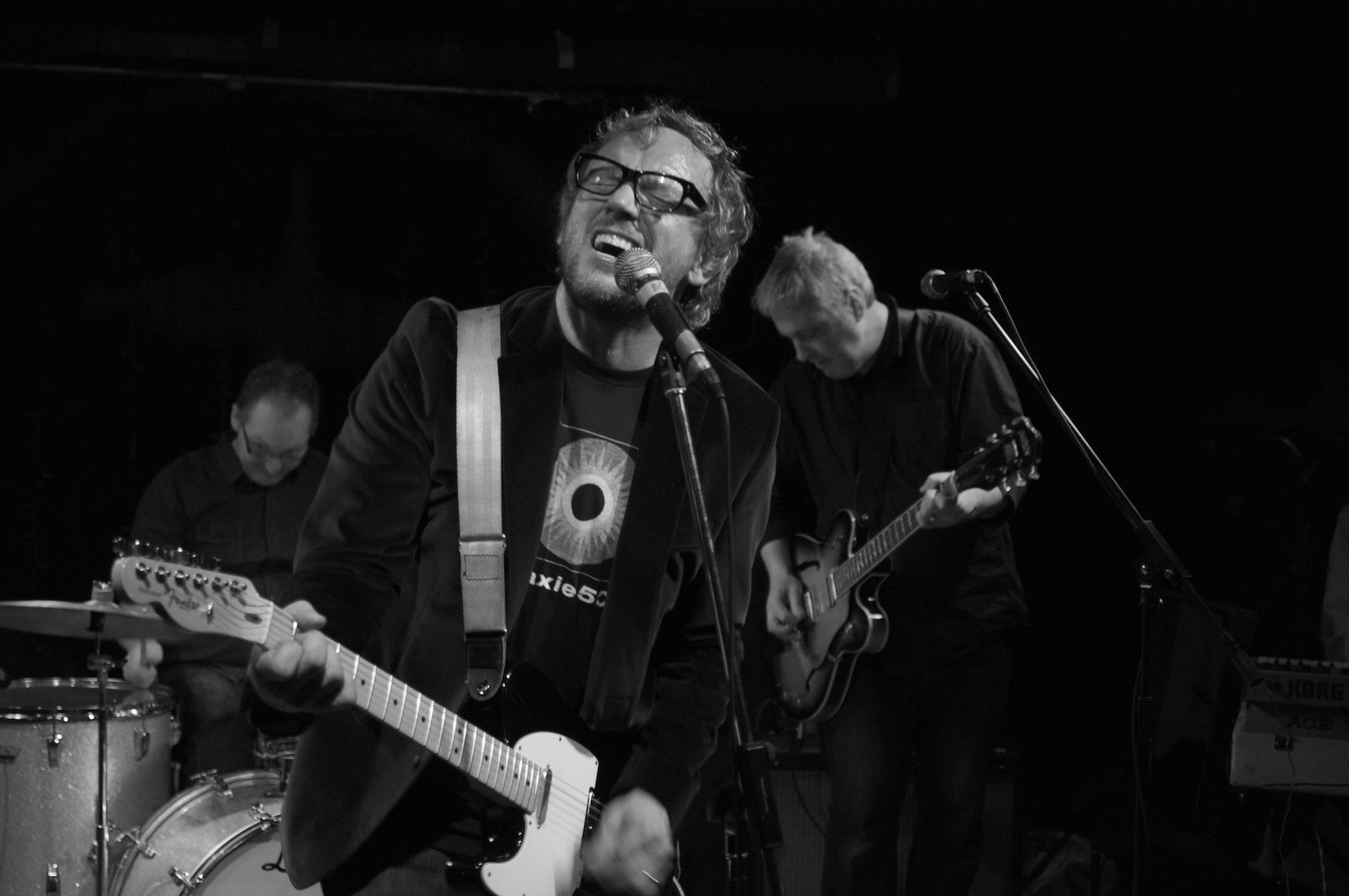Nothing makes a movie or a TV show so much better than soundtrack. It’s all in the music when it comes to the mood and setting of a scene. After all, it’s important that the right music is used. I’ve had previous experience of adding the wrong song to certain projects *cough* b movie factory *cough cough* student films…
But that’s only because most of my ideas for soundtrack were based off weird Youtube videos from reviewers (they were really big back then). I don’t have much real experience with instruments and the most I’ve ever done on any instrument isn’t enough to make a seamless catchy several-note ditty. Honestly, it helps if you are a musical expert. A lot of musicians who are capable of multiple instruments know what instruments can add to certain moods. It’s all in the sound. And nobody knows sound better than the musical geniuses over at Eggplant LF in Toronto who have become a new company by the name of Pop Sound. In their previous experience, they’ve won Emmy Awards and have so much of a portfolio under their belt, they could probably fill several libraries of albums. Even with all their work in film and TV mainly in North America, they’re looking to branch themselves out further to other countries and do other kinds of work as well. So to learn about sound and music and what Pop Sound is up to, I spoke to Terry Tompkins this week and learned not only how soundtrack works but about his great new company that he founded with Steve D’Angelo.
HNMAG: So your company used to be Eggplant LF until you rebranded to Pop Sound. Why is that?
Terry: We basically streamlined our operations, we were part of a bigger company called Eggplant that had a long line of businesses, including a post-facility. The part of the company that was myself and Steve D’Angelo was basically used for music and animation, but also films. We do music for the National, and CBC news all around the platforms. We just felt like we wanted to be a bit more boutique and smaller, and just be focused on that and not take our time on other things. It just felt like we had new people coming on board and it felt like this was a new time. A fresh new name, a new little company, and we sort of inherited the name Eggplant, we always wanted something better.
HNMAG: And what kind of projects are you working on currently?
Terry: We’re working for one on Disney JR called Dino Ranch. The music is created by this real genius friend of mine, Matt Fernandez. The music in it is like an old Western from the 40’s or 50’s. Very fun to do, and then we’re working on a series called Hero Elementary. It’s a funny little story and we were able to write a nice jazz-swing theme for that featuring Devine Brown and Dominic Caldod. We’re also doing this show for Tencent in China, which is our first venture into China, called Princess Do-Re-Mi. We’re also a rebrand of CBC News music so we’re working hard on that as well.
HNMAG: What are some of the most elaborate songs and music you’ve ever worked on?
Terry: There are times when we get gigs that are more elaborate, like Carmen Sandiego. That, they really wanted an adult score, so it was a lot more work and you want that spy thing. We wanted it to sound like it was in a theatre so when we get to do something that is particularly adult-sounding, but still fun you have to pull out all the tricks. That’s also what kind of happened in The Hollow, which was a nice one too because that’s another Netflix show we did. The score was kind of based a little on Stranger Things, we got to pull out some 70’s and 80’s synths, and build something pretty cool there as well.
HNMAG: Do you have any personal favourite compositions?
Terry: Well, we’ve written a lot of theme songs, over the years. One of my favourites was the theme for the very first show we wrote called Peep in The Big Wide World, and we were able to get Taj Mahal, a legendary folk singer to sing it and play it with his band so that was amazing. We flew to Seattle to do that. Also the Curious George theme we did for the TV show where we worked with Dr. John and he brought in his band. We also did a show called Land Before Time, which didn’t last as long as the other two but we got Ladysmith Black Mambazo to sing that.
HNMAG: When you come up with songs for TV shows and movies, what do you keep in mind when setting the mood?
Terry: It depends. Sometimes the producers will have a really clear idea of what they want mood-wise and will try to get into that. But it’s two elements: What you’re seeing on screen and what is the story doing. Sometimes just the look of a scene will give you a mood, and then when you marry that look and mood with whatever the action is, it’s trial and error. But together it’s what mood you think the producer wants will be, and thematically you try and keep a whole episode relatively in the same keys and related to each other so it’s pretty seamless. We’re always working with knowledge of what’s done before and what’s to come after. But to me, a lot of it is look and feel. What are the shots, and how is it cut, what’s the dialogue and how is it moving the story along.
HNMAG: The industry of music for film and TV is constantly changing, what have you noticed in terms of changes over the years?
Terry: It’s funny how things come and go. Producers know what they want this year, next year. But then 5 years later on, styles will reappear again. It’s sort of like Stranger Things when they did that score, that was pretty new and then you had a lot of people doing that in their projects. There’s a lot more diversity coming down the road in composing, songwriting, because for a long time it was pretty caucasian. We see more and more talent is being brought forward and given the chance in the scoring world to really shine. For years it seemed like a closed door, now those doors are starting to open and I think we’re going to see great stuff as the field grows larger and more diverse. We’re going to see a boon in creativity and it’s going in different ways than previous years.
HNMAG: So cultural music is playing a very critical role in film and television then?
Terry: It can, we did a show called Molly of Denali which was created by WTGH in the U.S. and in that show Molly’s parents owned a shop in Alaska and so when we did the theme the producers wanted an Athabaskan fiddle which was very much central to the Inuit. We got an Inuit fiddler to come down and the singer of an Inuit band. We flew these people in from VARIOUS places like Denmark, Yukon and Alaska. We got them together to act as consultants and really make that song come alive and write parts of it as well. I hope producers do more of that because it’s great music and it needs to be heard. It’s coming, and it’s already started with things like Black Panther. I just think that it’s bright days ahead creatively for the music industry for film and TV.

HNMAG: What are some current sound trends happening in the film industry?
Terry: It’s a bunch of different things, I think there are more cultural references. I think there’s a little more experimentation going on, as far as things being a LITTLE more left field. We’re seeing a bit more tension in scores, and they’re starting to get edgier.
HNMAG: Who do you feel creates these trends and what drives these sounds to be so big?
Terry: I think the trends are created by visionary producers and directors in what they ask for. It depends how free the composer is even. You can have directors and producers who are tough, but you can also have the types who know they can trust you creatively and will let you push them in a direction that’s a little bit more experimental or unexpected.
HNMAG: Now back to your business, are there new projects you have in mind for the future?
Terry: We’re trying to build a bigger bridge with China as they’re doing more and more English productions so we’re trying to build a bridge with them. We’ve enjoyed working with them and it’s been weird during the pandemic. But it’s a big volume of work and I think they’re fairy new into getting into the English market so they need some help. We’re working with them on that to sort of create a pipeline. Not just for us, but for everybody in a set of terms that everyone understands. We’ve just picked up a couple Youtube series. We’re actively in the market and the rebrand is a great excuse to go out there and look for work. But we’ve come through a very busy year, the last couple months have been very busy for us so even during the nature of our pandemic. We pretty much do it virtually no problem though and the pandemic has taught us that so we’ll probably brick and mortar once the whole pandemic is over hopefully sooner rather than later. For now it’s working well, but we’d like to see each other once in a while. I miss the comradery of working with my pals creatively and not over Zoom.
HNMAG: What other steps will you take in improving your portfolio?
Terry: Well, we have done SOME film work, and we’re really going to make some effort on the sales side to try and get more film work. We’ve also done some crime episodic TV, but we’d like to get more into that too. I’m primarily a songwriter, not so much someone who writes stories although I have done it. My business partner Steve D’Angelo is a great writer and would love to take a little vacation from the kid’s world and sort of do a little hard-hitting music in an episodic series so we’re gonna move to that and get active on that. It’s not a market we’ve gone hard after, but the mandates of the new company is to do that.
HNMAG: Any types of clients you will be working with in the future?
Terry: I think we’re going to be working with more American producers, it will open up opportunities outside of Canada or music companies to sort of build our reservoir. I think that will be a big change, on the creative side of the business. You’re going to see major producers who don’t really need the funding for Canadian government that Cancon gives them because they’re getting really big fees from Netflix or Apple TV. They don’t really need to supplement their budget with grants so it’s taken a little bit away with the Cancon regulation but we like it. Canadian producers are all top notch and great. We’ve done work in Russia, we’ve done work in Italy, now China. We’re starting to expand that.

HNMAG: Do you feel it will take time to transition to these new plans of expansion or do you feel you are ready to take them on?
Terry: I think we’re ready to take them on. The pandemic is odd, that it’s hard to get face-to-face with people. Zoom is not the same as going and meeting people and you can’t travel. But we don’t have time to sit around, it’s already started so it might take a little longer to implement them due to the COVID but we’ve got a plan and we’re going to stick to it.
HNMAG: How are you different from other companies who make music?
Terry: One of the things that makes us different is we started as music for advertising company. One thing you learn in advertising is branding and how to make things that are very hooky and pure. I think that gave us a bit of an advantage because when it came to writing theme songs we knew how in short periods of time how to create hooks. What really got us into the business of animation was that we had that sort of sixth sense of what was going to hook people and what was going to make them relate to a theme song.
HNMAG: Children’s programming is really changing. As people who design music for kid’s shows, what changes and expansions have you noticed lately?
Terry: I think there’s a lot more diversity on screen, that’s for sure. I think they’re dealing with more difficult issues. We did a song for Arthur that was sort of about fitting in and it was very powerful. They’re not very reluctant to take those on, and I think the science behind it is psychologists that work in the animation business. I think the messaging is getting more applicable to all kids as opposed to leaving kids out of whatever the message is. I think that’s huge, and they’re doing it right and I think that’s a good thing. On the other side, animation is such a big money maker in Hollywood too so you’re getting all these amazing animated properties. We love to get to that as well. Moving from TV to film, we’d love to do that. But there’s so much that’s started, there’d be one animated thing a year, now it’s one a month and they’re so well done.
HNMAG: What types of make and break moments in music can cause a film or show to succeed or fail?
Terry: Sometimes when you’re watching a film or a show, and the music is such an anomaly it takes that away from the picture and the story. That’s a fail and sometimes it can be on the composer’s side or the producer’s side. When you approach the show, you’re hopefully refining the style as you go but if you do not have a good style in mind or you don’t have the right composer, you might find it doesn’t stylistically hold up. Then the show suffers from it really badly, so the make or break for me is the conversations leading up to actually sitting down to score the first episode. Also having the creative meetings that you have to have to get on the same page. It’s hard to articulate music especially if you’re not a musician, so I think we need to let our producers hear different things so key can be figured out to what’s being written for the show.
It’s amazing what I have learned about music and sound. I wish the best to Terry Tompkins and his associates as they continue to make marvellous music in the future. We could use some more music especially during this time.

